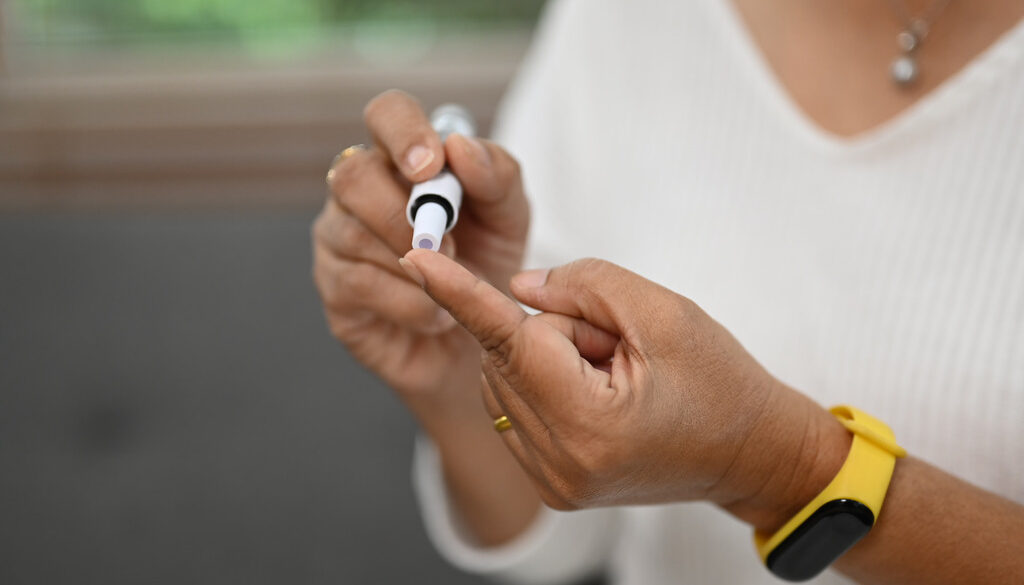A Guide to Diabetes and Colonoscopy Prep. Are Colonoscopies Safe for Diabetics?
Colon cancer is the third most common cancer in both men and women. Perhaps even more alarming is that in its earliest stages, colon cancer has no symptoms.
While at-home testing kits promise convenience, they are not a substitute for a screening colonoscopy, which is considered the “gold standard” for detecting and removing pre-cancerous polyps before they develop into colon cancer.
A colonoscopy requires a specific, clear liquid diet before the procedure, in addition to a bowel cleanse/prep.
But what about diabetes and colonoscopy prep? If you’re a diabetic, is the colonoscopy prep dangerous for you? What is the connection between diabetes and colonoscopy prep?The truth is, it is safe for those with diabetes to have a colonoscopy, although the instructions for preparing for the procedure are different than they are for those who do not have diabetes.
We’ll review some of those differences, the details of diabetes and colonoscopy prep and why they’re important.
Diabetes and Colonoscopy Prep: How Does a Colonoscopy Prep Affect Blood Sugar?
Because your diet has changed and you will only be on clear liquids, your blood sugar may run higher or lower more often than normal. This is why it is vital to test your blood sugar several times during the day when you’re taking your colonoscopy prep.
We’d also like for you to record what your blood sugar is the day of the test and bring it with you to your procedure.
Why Can’t You Take Metformin Before a Colonoscopy?
Metformin increases the risk of developing a condition called lactic acidosis.
Lactic acidosis is a buildup of lactic acid in your bloodstream. This occurs when your oxygen levels become low in parts of your body that regulate your metabolism.
This is why Metformin should not be taken before or for a period after your colonoscopy.
How Do Diabetics Prepare for a Colonoscopy?
We believe in being partners in your care, and for that reason, patient education is important to us. If you’re experiencing diabetes and colonoscopy prep, this education is vital in a safe and successful colon screening.
This is why we have provided detailed instructions for our patients with diabetes.
It is imperative that you remain in communication with us about your blood sugar levels and be sure to tell us of any unusual or irregular readings.
We’ll review some of those key elements of diabetes and colonoscopy prep.
Diabetes and Colonoscopy Prep:
Insulin-Dependent Patients
Day Before:
- Take your morning dose.
- Take ½ of your evening dose.
Procedure Day:
- Don’t take your morning dose, but bring the insulin with you to your procedure.
Oral Diabetic Medication Patients
Day Before:
- Take your normal morning dose of oral medication.
- Don’t take the evening dose of your oral medication.
Procedure Day:
- Don’t take your morning dose of oral diabetic medications.
Instructions for Byetta
Day Before:
- Don’t take Byetta.
Day of Procedure:
- Don’t take Byetta until after your colonoscopy; and when you resume your diet.
Most importantly, we want you to know that we are available to answer any questions from our patients about diabetes and colonoscopy prep. We will always have time to address your concern. If you have any questions, please call (919) 783-4888.
RMG Gastroenterology: Keeping Procedures Safe for Diabetes and Colonoscopy Prep
A colon cancer screening is simply too important to put off. We realize our patients with diabetes may be wondering about the safety of a colonoscopy prep. The bottom line is it can be done safely if you follow our instructions. The truth of the matter is that it is much riskier to skip your colon cancer screening and take the chance of developing the cancer at a later stage, when it’s much more difficult to treat.
Have you had your colonoscopy? We recommend that everyone 50 and older have a screening colonoscopy every 10 years. However, this may vary. If you have a family history of colon cancer, if you’ve previously had colon cancer, or if you have a history of precancerous polyps, you may need to have a colonoscopy more often.
Questions? We will always take time to answer them. Please contact us for an appointment.We look forward to being partners in your care.
If you’d like to get more information about colon and rectal cancer, you can review this statistical fact sheet from the National Cancer Institute.



